第30章 VI(2)
Within two years of her accession, the storm-clouds which, from the first, had been dimly visible on the horizon, gathered and burst. Victoria's relations with her mother had not improved. The Duchess of Kent, still surrounded by all the galling appearances of filial consideration, remained in Buckingham Palace a discarded figure, powerless and inconsolable. Sir John Conroy, banished from the presence of the Queen, still presided over the Duchess's household, and the hostilities of Kensington continued unabated in the new surroundings. Lady Flora Hastings still cracked her malicious jokes; the animosity of the Baroness was still unappeased. One day, Lady Flora found the joke was turned against her. Early in 1839, travelling in the suite of the Duchess, she had returned from Scotland in the same carriage with Sir John. A change in her figure became the subject of an unseemly jest; tongues wagged; and the jest grew serious. It was whispered that Lady Flora was with child. The state of her health seemed to confirm the suspicion; she consulted Sir James Clark, the royal physician, and, after the consultation, Sir James let his tongue wag, too. On this, the scandal flared up sky-high. Everyone was talking; the Baroness was not surprised; the Duchess rallied tumultuously to the support of her lady; the Queen was informed. At last the extraordinary expedient of a medical examination was resorted to, during which Sir James, according to Lady Flora, behaved with brutal rudeness, while a second doctor was extremely polite. Finally, both physicians signed a certificate entirely exculpating the lady. But this was by no means the end of the business. The Hastings family, socially a very powerful one, threw itself into the fray with all the fury of outraged pride and injured innocence; Lord Hastings insisted upon an audience of the Queen, wrote to the papers, and demanded the dismissal of Sir James Clark. The Queen expressed her regret to Lady Flora, but Sir James Clark was not dismissed. The tide of opinion turned violently against the Queen and her advisers; high society was disgusted by all this washing of dirty linen in Buckingham Palace; the public at large was indignant at the ill-treatment of Lady Flora. By the end of March, the popularity, so radiant and so abundant, with which the young Sovereign had begun her reign, had entirely disappeared.
There can be no doubt that a great lack of discretion had been shown by the Court. Ill-natured tittle-tattle, which should have been instantly nipped in the bud, had been allowed to assume disgraceful proportions; and the Throne itself had become involved in the personal malignities of the palace. A particularly awkward question had been raised by the position of Sir James Clark. The Duke of Wellington, upon whom it was customary to fall back, in cases of great difficulty in high places, had been consulted upon this question, and he had given it as his opinion that, as it would be impossible to remove Sir James without a public enquiry, Sir James must certainly stay where he was. Probably the Duke was right; but the fact that the peccant doctor continued in the Queen's service made the Hastings family irreconcilable and produced an unpleasant impression of unrepentant error upon the public mind. As for Victoria, she was very young and quite inexperienced; and she can hardly be blamed for having failed to control an extremely difficult situation. That was clearly Lord Melbourne's task; he was a man of the world, and, with vigilance and circumspection, he might have quietly put out the ugly flames while they were still smouldering. He did not do so; he was lazy and easy-going; the Baroness was persistent, and he let things slide.
But doubtless his position was not an easy one; passions ran high in the palace; and Victoria was not only very young, she was very headstrong, too.
Did he possess the magic bridle which would curb that fiery steed? He could not be certain. And then, suddenly, another violent crisis revealed more unmistakably than ever the nature of the mind with which he had to deal.